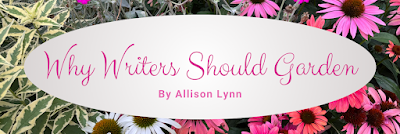Today is a double blog celebration! Not only do I get to share my words on our beautiful Inscribe Christian Writers Fellowship blog, but I’m also celebrating my first devotional with The Upper Room!
I normally wouldn’t mention something like that here, but I received my submission opportunity because of this wonderful ICWF group, and I always think it’s more fun to celebrate our successes together!
My Upper Room devotional was born from my garden. In the chilly days that blend winter into spring, “the flowers appeared in the earth” (Song of Solomon 2:12). My delicate little snowdrops always inspire hope for a better, brighter season, so I just had to write about them.
For this, and for so many reasons, I believe all writers should garden.
I’m incredibly passionate about gardening. I have two of my own - a full flower extravaganza around our house and a large community plot for my vegetables. I’ve also worked on many family and community gardens over the years. I’m always happy to stop everything and spend time in the garden!
But you don’t need to be obsessed with green things to reap the benefits of spending time in the dirt. Whether it’s a few houseplants, some well-potted summer containers, or a simple veggie patch in the backyard, every person’s life can be enriched by loving and growing plants!
There are many reasons why writers in particular should garden, but let us consider this one today:
Every writing workshop I’ve attended has, at some point, emphasized the need to write for, and be inspired by, the five senses. How do we use words - simple black markings on a white background - to bring alive the vibrancy of taste, touch, sight, sound, and smell?
Gardening is an activity rich in all five senses!
And inspiration for writing is everywhere …
Taste
As your kitchen fills with summer harvests, fill your plates and pages with new creations. Don’t just write out the facts of your recipes! Use them to tell a story about your family’s great love of green beans, or wax poetically about that first bite of a freshly picked beefsteak tomato.
Touch
Put aside your garden gloves and run your arms through the long foliage of the Daylily. Rub your fingers along the silvery, furry leaves of the Lambs Ears. Let a butterfly land on your hand. Slip off your shoes and feel the grass between your toes. How can you translate such textures into lines and phrases?
Sight
My garden is awash in colour, but there’s so much more to see when you choose to look carefully … The Swallowtail Caterpillar with its sharp black, yellow and chartreuse markings. The streak of grey as a squirrel rips along the fence. The ever-shifting rays of sunshine piercing through the leaves. Stories and essays abound in the visual wonder of it all!
Sound
I invite you to close your eyes for a moment. Hear your breath. Listen for the rustle of leaves as birds hop from branch to branch. Catch a laugh from the neighbour’s little boy. What poems are drifting through the air today?
Smell
Don’t just smell the roses - smell everything! How do you describe the citrusy scent of a Mock Orange blossom? Or the butterfly-entrancing perfume of the Buddleia shrub? What memories are evoked by the earthy waft of freshly turned soil?
So please, spend some time indulging your senses in the garden today! With life - and stories - growing literally all around us, how can gardening not inspire great writing?
Singer, songwriter and worship leader, Allison Lynn, is drawn to the power of story to grow hearts and communities. Allison and her husband, Gerald Flemming, just released their 9th Infinitely More album - The Sum of All Love. Publications include The Anglican Journal (national newspaper), Taste and See (journal), Love STC (Niagara Tourism Blog), and five stories with Chicken Soup for the Soul. www.InfinitelyMore.ca



.png)
.png)










.jpg)
%20small.jpg)



.JPG)